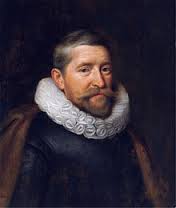 Born in Kent in 1568, Sir Henry Wotton was a diplomat and writer who is perhaps best known for his work The Character of a Happy Life. He was born into a well-to-do family that included other diplomats and landed gentry and received a good education, first at Winchester College and then Oxford University, from which he graduated in 1588 at the age of twenty.
Born in Kent in 1568, Sir Henry Wotton was a diplomat and writer who is perhaps best known for his work The Character of a Happy Life. He was born into a well-to-do family that included other diplomats and landed gentry and received a good education, first at Winchester College and then Oxford University, from which he graduated in 1588 at the age of twenty.
Wotton began writing seriously when he was at Queen’s, including a play titled Tancredo, but he was also involved with the world of science at the time and throughout most of his life had a healthy interest in experimentation. After the death of his father during Wotton’s last year at university, he began developing his diplomatic career by heading abroad.
Traveling from Italy to Geneva, Wotton returned to English shores in 1594 and was admitted to the bar to study law. He immediately entered into service with the Second Earl of Essex, his job being to provide intelligence for a number of European regions including Italy and Poland. During the period, when Essex was suddenly brought down in 1601, Wotton was prudent enough to make sure he was abroad at the time and safe from any form of persecution.
In disguise, he returned to England with a warning when there was a plot uncovered to kill James VI and stayed at the grateful Scottish king’s court for a few months under an assumed name. When James gained the English crown, Wotton received a knighthood for his service and returned to Venice to represent the king there.

A large part of the next 20 years were spent in Venice on diplomatic service where he became friends with the historian and scientist Paolo Sarpi. His reputation was, for a short while, brought into disrepute by Caspar Schoppe who wrote a damning indictment of the rule of James VI and Wotton’s part in it.
After Venice, Wotton did not work in a diplomatic capacity for a while perhaps because he was out of favor with the king. He did, however, become a Member of Parliament in 1614 and spent a short while at the Hague before being returned to his post in Venice.
He was a champion for the king’s daughter Elizabeth of Bohemia and represented her in Vienna. Wotton returned to England in 1624 and became provost for the Eton College, though he had some financial problems and spent a period in jail.

Wotton’s money situation improved considerably when he was awarded a sizable pension by the king on the understanding that he compose a detailed history of England. His later life was one of comfort and he often spent time fishing with his friend Izaak Walton on the Thames at a spot that became known as Black Potts.
Wotton contributed fifteen poems to the Reliquiae Wottonianae including The Character of a Happy Life, a poem about the life of a virtuous individual who does not serve the interests of others. He also wrote two works in his own right including the Elements of Architecture. Wotton finally died in 1639 at the age of 71.

